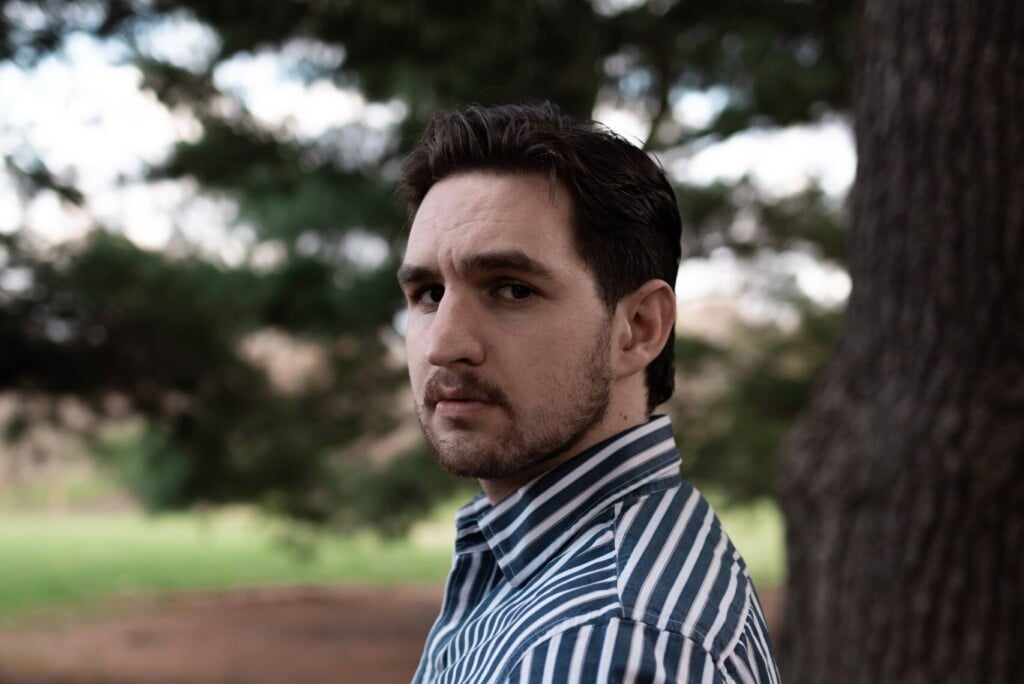Joshua Roman transcends his experiences with long-COVID through song
What does it mean to be immune? Internationally acclaimed cellist Joshua Roman explores the contours of immunity on his debut solo album and a performance project and concert series titled “Immunity.”
Roman—a world-class cellist and musical prodigy—became the youngest principal player in the Seattle Symphony Orchestra at age 22. He has more than lived up to expectations, having won prizes at competitions including the Klein, ASTA, Washington, Stulberg, NFMC, H-A Music Society, Corpus Cristi, CIM, and others, as well as performing as a member of the Cleveland Orchestra among other notable appearances.
But, perhaps his most personal artistic contribution to date is his first solo album—a meditation on recent health struggles dealing with ongoing long COVID, accompanied by a concert series for people coping with long COVID and performed at long COVID clinics throughout the U.S.
In early 2021, Roman came down with a severe case of COVID. It presented less as the flu or cold-like illness but more as a neurological syndrome. The illness resulted in post-COVID sequelae known as dysautonomia, or, in non-medical jargon, a dysregulation of the central nervous system.
Experiencing relentless fatigue and cognitive problems, it seemed that Roman’s remarkable career and musical ambitions might come to a grinding halt. However, Roman found a way out of this darkness, primarily guided by his empathy and dedication to his art and craft. His new album and accompanying tour embody the strength that informs the best of humanity and which makes the highest artists, perhaps also the most humane.
Roman created an album and concert program featuring musical works, including some of his newer, original compositions and a menagerie of covers, that have been significant to him at various stages of his long COVID journey.
Since then, Roman has expanded the Immunity Concert into a more comprehensive educational initiative. He noted that the project “is representative of music not only that I would write but what the cello means to me and that all came together after I had long COVID, after a friend asked me to play on her series,” he says.
Immunity’s content reflects Roman’s journey, with compositions ranging from Bach’s Prelude to Crumb, Penderecki, Shaw, and Leonard Cohen to Roman’s original, carefully sublime compositions. The album even includes “Dust in the Wind” by Kansas—a piece Roman learned to play on his dad’s guitar when he was younger.
The intimate nature and personal connection to the music and curation behind the material add many layers of contemplative depth to the album, forged tenderly with an insightful twist on what it means to struggle and the definition of immunity as Roman sees it: “in terms of where we are as a collective group of humans that; the idea of collective immunity is if something doesn’t affect me but it affects you, doesn’t it affect me, and aren’t we all bound together anyway?”
According to the Federal Agency for Healthcare Research and Quality, roughly 18 million people have had long COVID or reported ongoing COVID symptoms as of June 2024 in the United States.
And while most of the world has put the pandemic in the rearview mirror, for tens of millions of people globally, the psychological and physiological aftereffects of the pandemic are anything but a thing of the past. The answer to the COVID pandemic question being “over” is a complicated, qualified answer and likely depends on who you ask. And for those still suffering in a myriad of ways, many feel overlooked or forgotten. Roman’s project seems more necessary and relevant in light of the developments of the last few years.
Roman says the songs on the album “encompass a pretty broad swath of the kind of music that is inside me and that I’m very passionate about. The reason they were chosen for this album was that I was playing around with different ways of building a program that had some sort of flow, arc, and meaning and wasn’t bound by style. That tells a cohesive story, not just a set of vignettes that have nothing to do with each other.”
In a recent interview, Roman stated that a pivotal point for him, artistically and personally, was encountering a firefighter from rural Oregon. “A burly guy, a firefighter from a small town in eastern Oregon. He looks the tough part. His job is to be the hero, and he’s going through this invisible thing that was so real. It is about reaching people who aren’t acknowledged and who aren’t seen, and the project as a whole is about finding that in each of us,” he says.
“This wasn’t originally conceived as a long COVID program for patients. It was conceived as how I could do concerts now,” Roman says. Roman will play privately at KU Medical Center’s long COVID wing at The University of Kansas, Cancer Center Olathe for patients with long COVID on Oct. 3.
“I’ve performed for people in internally displaced persons camps, for people in jails, in all sorts of situations where they share a bond, but the difference was that this was the first time where I also shared the same bond,” Roman says.
As Roman makes his way around the country, making the internal modification of the human heart his primary musical and vocational prerogative, he holds his antecedents close and in high regard; among a long roster of differing personalities, approaches, and backgrounds, Roman makes special note of Pablo Casals—the Spanish-Puerto Rican cellist who discovered the Bach Suites—referencing in conversation a quote attributed to Casals: “To live is not enough; we must take part.” Indeed.






